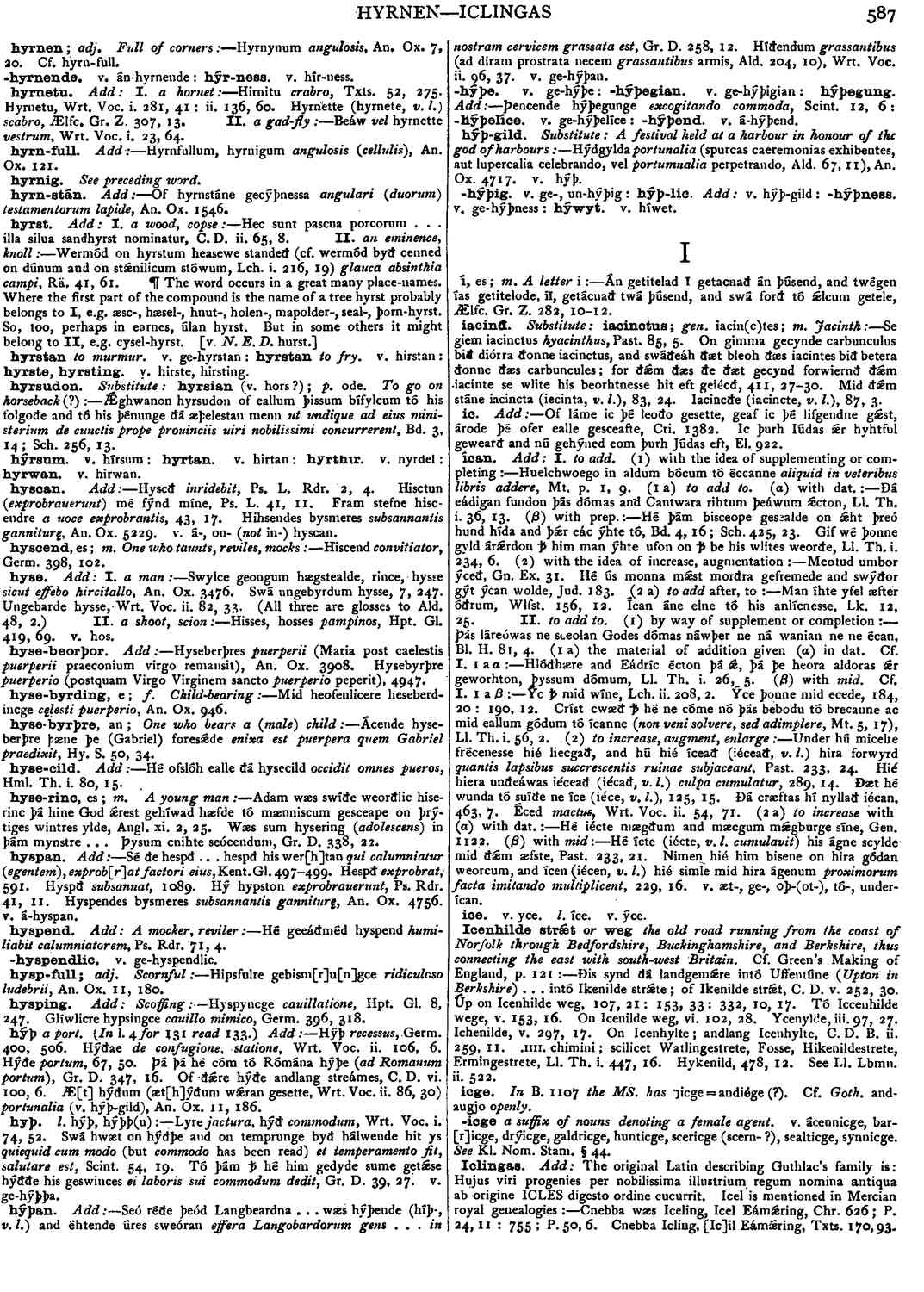ícan
-
Huelchwoego in aldum bócum tó éccanne aliquid in veteribus libris addere, Mt. p. i. 9. (l a)
to add to. (α)
with dat. :-- Ðá eádigan fundon þás dómas and Cantwara rihtum þeáwum ǽcton,- Ll. Th. i 36, 13,
-
Hé þám bisceope gesealde on ǽht þreó hund hída and þǽr eác ýhte tó. Bd. 4,
- 16; Sch. 425, 23.
-
Gif wé þonne gyld árǽrdon ꝥ him man ýhte ufon on ꝥ be his wlites weorðe,
- Ll. Th. i. 234, 6.
-
Meotud umbor ýceð,
- Gn. Ex. 31.
-
Hé ús monna mǽst morðra gefremede and swýðor gýt ýcan wolde, Jud. 183. (2 a)
to add
after, to :-- Man íhte yfel æfter óðrum,- Wlfst. 156, 12.
- Ícan áne elne tó his anlícnesse. Lk. 12, 25.
- Þás láreówas ne sceolan Godes dómas náwþer ne ná wanian ne ne écan. Bl. H. 81, 4. (la) the material of addition given
-
Hlóðhære and Eádríc écton þá ǽ, þá þe heora aldoras ǽr geworhton, þyssum dómum,
- Ll. Th. i. 26, 5.
-
Yc ꝥ mid wíne,
- Lch. ii. 208, 2.
-
Ýce þonne mid ecede,
- 184, 20 : 190, 12.
-
Críst cwæð ꝥ hé ne cóme nó þás bebodu tó brecanne ac mid eallum gódum tó ícanne (
non veni solvere, sed adimplere,
- Mt. 5, 17), Ll. Th. i. 56, 2.
-
Under hú micelle frécenesse hié liecgað, and hú hié íceað (iéceað, v. l.) hira forwyrd
quantis lapsibus succrescentis ruinae subjaceant,
- Past. 233, 24.
-
Hié hiera unðeáwas iéceað (iécað,
v. l.) culpa cumulatur,
- 289, 14.
-
Ðæt hé wunda tó suíðe ne íce (iéce,
v. l.
),- 125, 15.
-
Ðá cræftas hí nyllað iécan,
- 463, 7.
-
Éced
mactus,
- Wrt. Voc. ii. 54, 71. (2 a) to increase with
-
Hé iécte mægðum and mæcgum mǽgburge síne,
- Gen. 1122.
-
Hé ícte (iécte,
v. l. cumulavit
) his ágne scylde mid ðǽm æfste,- Past. 233, 21.
-
Nimen hié him bisene on hira gódan weorcum, and ícen (iécen, v. l.) hié simle mid hira ágenum
proximorum facta imitando multiplicent,
- 229, 16.
Bosworth, Joseph. “ícan.” In An Anglo-Saxon Dictionary Online, edited by Thomas Northcote Toller, Christ Sean, and Ondřej Tichy. Prague: Faculty of Arts, Charles University, 2014. https://bosworthtoller.com/53799.
Checked: 0